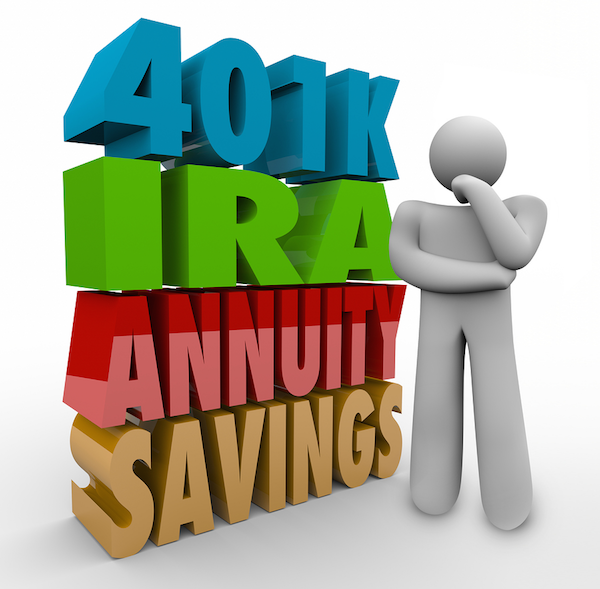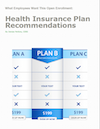Millennials Remain Skeptical of 401(k) Plans

I know quite a few millennials—some are nieces and nephews and others are children of friends and acquaintances. I love and admire them all. For the most part they are all smart "kids" who are decent and kind. But I must confess: I don't find them as interesting and awesome as their grandparents, parents and friends do. That’s probably because I can still remember being their age and thinking I was smarter and more interesting than my current self would find. Make sense?
Anyway, despite my aloofness towards millennials, I do enjoy having a "serious" conversation with them. Especially when the conversation is about some of my favorite subjects to talk about. In this case: workplace retirement savings plans; specifically 401(k) plans.
The Conversation
Recently I had dinner with two millennials. They are recent college graduates who are smart and focused. To their immense credit they are researching various retirement savings options. So, naturally, the conversation turned to workplace 401(k) plans. And my excitement barometer went way up when one of these millennials called the 401(k) plan a scam.
Don’t get me wrong, I’m not offended by those words at all, I just never met a millennial that expressed their wariness of financial markets so abruptly. Personally, I think they have many reasons to be cautious.
- They were in college during the worst recession of their and their parents’ lives
- They know how difficult it is to find a job, let alone a good paying one
- They also know about the government’s bailout of Wall Street
Are 401(k) Plans Morphing Into Pension Plans?

There are many things that distinguish a defined benefit pension plan from a defined contribution savings plan. The differences were there from the start. Basically, defined benefit pension plans were designed to provide regular cash payments at retirement. Defined contribution plans are investment-based savings plan with no guarantee of lifetime income or any income at all. But despite the very different original intentions of these plans (retirement income versus investment savings), today they largely serve the same purpose. They are the two most commonly provided workplace retirement plans.
Total assets in defined contribution savings plans like the 401(k) plan haven’t yet overtaken those in defined benefit plans. However, defined contribution plans are the most prevalent workplace retirement plan in the private sector. And as the popularity of the 401(k) plan increases, so does its basic structure. For several years now these plans have adopted some of the same mechanisms as defined benefit pension plan. These mechanisms include automatically enrolling participants in the plan and choosing their investment funds. A quick look at today’s large company 401(k) plans (companies most likely to offer them), and automatic features abound. The average large employer 401(k) plan today has automatic enrollment, automatic escalation, and target date funds.
These automated features allow employers to choose when an employee enrolls and the amount of money he or she puts in the plan (automatic enrollment), as well as the fund(s) in which to place their money (default investment, increasingly a target date fund). It also allows the employer to increase the amount of money the employee puts in over time (automatic escalation).
What’s Up With That?
Could it be that employers and their hired retirement plan administrators are conceding that 401(k) plans are too complicated for workers to manage on their own? Continue Reading...
The Future of Workplace Employee Benefits - The One Option Plan

There are many likable features of workplace defined contribution retirement plans like the 401(k) plan. Employees can take the plan with them when they leave their employer. They can make their own investment choices. And they can enjoy the benefits of market highs. But as the 2008 Great Recession highlighted these plans have many negative components. However these negative features are accepted because most workers will never experience an alternative.
According to the Small Business Administration (SBA), more than 70% of small businesses do not offer a workplace retirement plan to workers. Of those that do offer a plan, 75% of workers participate in a 401(k) style plan. On the other hand, nearly all large firms sponsor a retirement plan. And like small firms, the plans they offer are mostly 401(k) style plans. As reported in a recent Towers Watson survey, only 7% of large firms offer traditional defined benefit pension plans to new hires. Consequently, there is a generation of workers who will never have an opportunity to participate in a traditional pension plan. The 401(k) plan is increasingly their only option.
But it is not just retirement plan options that employers are narrowing. Workplace health insurance options are decreasing as well. Even while employers are exploring private exchanges to give employees more health plan choices, these plans are usually high deductible health plans (HDHPs). And like 401(k) style retirement plans, HDHPs have some attractive features and some negative features.
The Future May Not Be So Bright
The negative aspects of 401(k) style retirement plans include high fees Continue Reading...


 Denise Perkins
Denise Perkins




